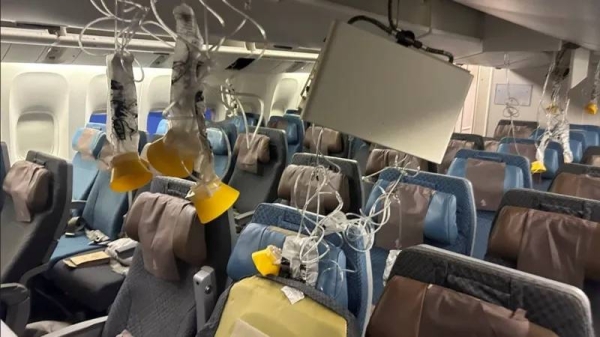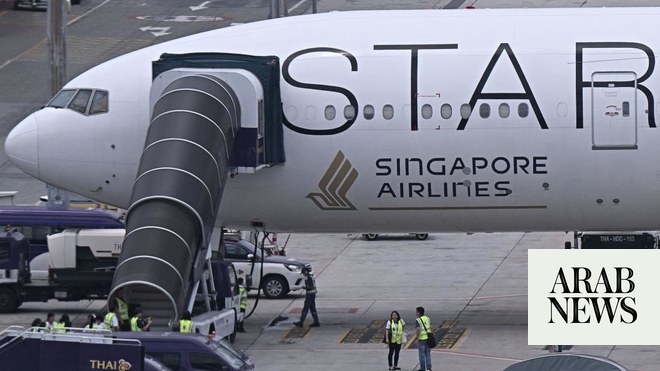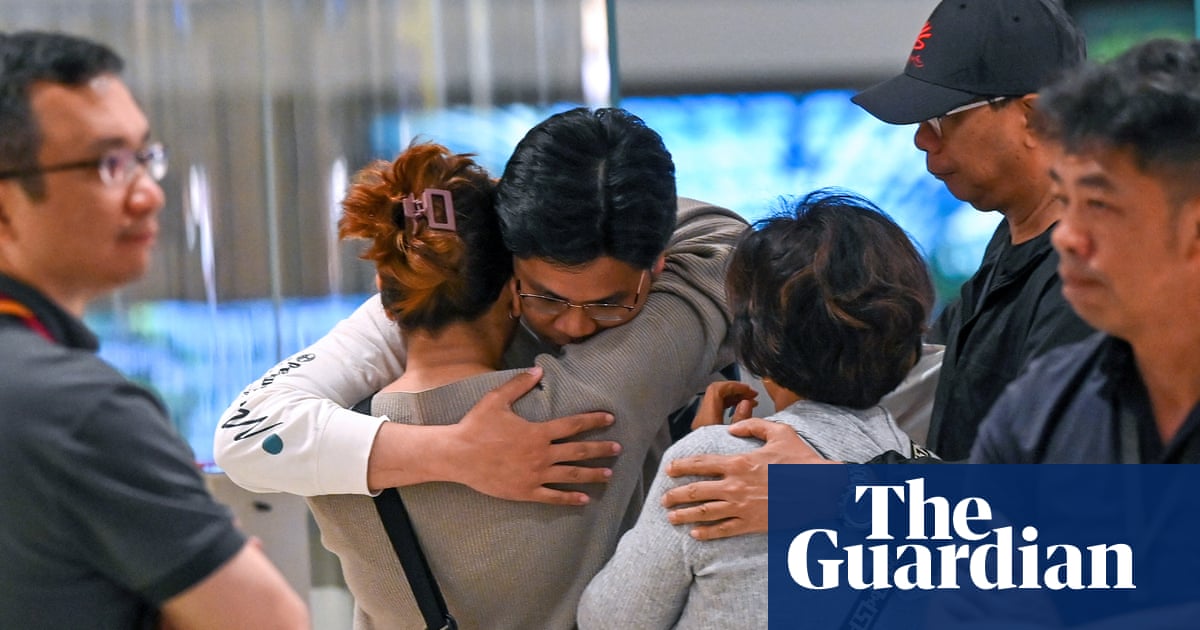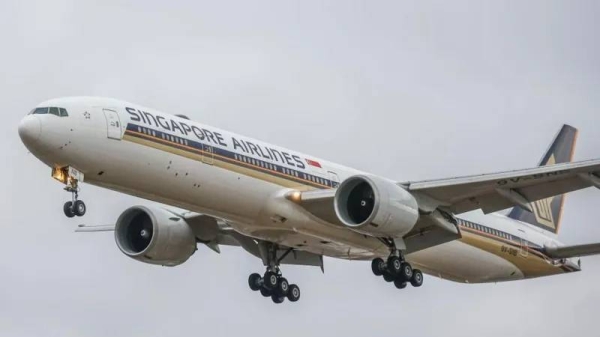
Passengers have recounted scenes of "absolute terror" when severe turbulence hit their Singapore Airlines flight, launching people and objects across the cabin.
A 73-year-old British man, Geoff Kitchen, died from a suspected heart attack, while more than 30 people were injured when the London-Singapore flight suffered a sudden drop as a meal service was underway.
Briton Andrew Davis described “awful screaming and what sounded like a thud" in the first few seconds of the incident.
"The thing I remember the most is seeing objects and things flying through the air.
"I was covered in coffee. It was incredibly severe turbulence," he told the BBC.
"I started bracing for what was happening, and very suddenly there was a very dramatic drop, so everyone seated and not wearing a seatbelt was launched immediately into the ceiling," 28-year-old student Dzafran Azmir told Reuters.
"Some people hit their heads on the baggage cabins overhead and dented it, they hit the places where lights and masks are and broke straight through it," he added.
The Singapore-bound Boeing 777-300ER diverted to Bangkok following the mid-air incident, making an emergency landing at 15:45 local time (08:45 GMT) with some 211 passengers and 18 crew aboard.
Singapore Airlines said 31 people on board were taken to hospital and the airline offered its deepest condolences to Kitchen"s family.
The Thornbury Musical Theatre Group, a local theatre company he helped run in South Gloucestershire, called him "a gentleman with the utmost honesty and integrity".
An airline official said that about 10 hours into its flight, the plane had encountered "sudden extreme turbulence" over Myanmar"s Irrawaddy Basin at 37,000 feet.
The company said it was working with Thai authorities to provide medical assistance to passengers, and was sending a team to Bangkok to provide any additional help needed.
Singapore Airlines also provided details on the nationalities of those on the flight, which included 47 from the UK.
Allison Barker said she received a message from her son, Josh, who was on the plane en route to Bali: "I don"t want to scare you, but I"m on a crazy flight. The plane is making an emergency landing... I love you all."
After that message, she waited for a "petrifying" two hours before hearing from him again.
"One minute, he was just sitting down wearing a seatbelt, the next minute, he must have blacked out because he found himself on the floor with other people," she told the BBC.
Josh, she said, sustained minor injuries - but she is concerned that coming close to death could have a lasting impact on him.
Another Briton, Jerry, 68, was traveling to Australia for his son"s wedding. He said there was no warning before the "plane plunged".
"I hit my head on the ceiling, my wife did - some poor people who were walking around ended up doing somersaults," he recalled.
A British man with a neck injury said he and his family were “lucky enough” none of them had died.
“It went from no turbulence... no plane shaking at all and then I was hitting the roof. All of a sudden, I was up like that.
“My son was thrown down on the floor two rows behind me. I heard that there was a guy hitting the roof in the toilet and he was injured quite badly, too,” he said, speaking from a Thai hospital.
Flight turbulence increasing as planet heats up - study
Singapore"s Transport Minister Chee Hong Tat said the government would provide assistance to the passengers and their families.
"I am deeply saddened to learn about the incident on board Singapore Airlines flight SQ321 from London Heathrow to Singapore," he posted in a statement on Facebook.
Map showing flight"s intended route and the diversion it took
Turbulence is most commonly caused by aircraft flying through cloud, but there is also "clear air" turbulence which is not visible on a jet"s weather radar.
“Injuries from severe turbulence are relatively rare in the context of millions of flights operated," aviation expert John Strickland told the BBC.
"However, severe turbulence can be dramatic and lead to severe injuries or sadly in this case a fatality."
Flight crews are also trained in how to respond to turbulence, he said.
"It is not for nothing that airlines recommend keeping seatbelts loosely fastened throughout a flight, be it long or short," he added.
Aviation journalist Sally Gethin said wearing a seatbelt could be the "difference between life and death", explaining that anything not bolted down is at risk during severe turbulence.
Research has shown that climate change will make severe turbulence more likely in the future. — BBC












